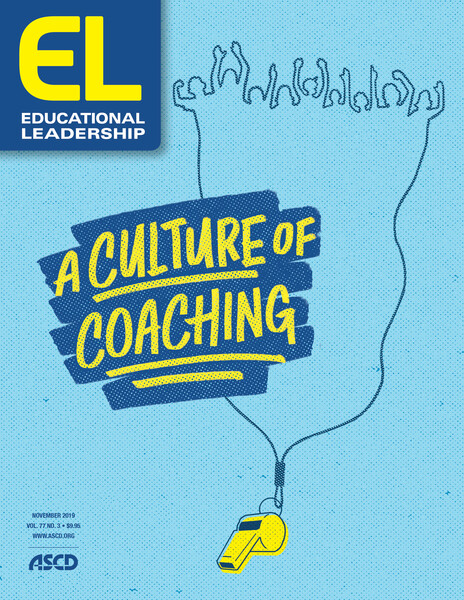My first job as a teacher was in 1988, in a school that could have been a poster child for an "educational desert." The school was low in materials, supplies, collegiality, and aspirations. It was high in tension (it was the first year of mandated desegregation) and unexamined habits. And yet, I remember the year as a treasure box of learning opportunity that launched this unprepared and naïve young educator's love affair with teaching.
My colleague Loretta Shepherd and I were, as I recall, the only two teachers new to the high school that year—and the only two "outsiders" as well. She, a history teacher, had been teaching for several years in another district and had both a fierce determination to help her students expand their understanding of the wider world and true curiosity about approaches that seemed promising in helping her students grow as learners and human beings. We met almost daily to share experiences, ideas, failures, and successes. She had far more to share with me than I did with her, but she always made me feel like I was contributing too. Loretta and I informally enriching one another's practice was my first experience with mutual, collegial "coaching."
Later, in a different school, I team-taught, first with Doris Standridge, then with Annie McKenzie. In both instances, my partner and I differed significantly in background, age, and life experiences. But our frequent, extended conversations about teaching provided a kind of nourishment that fueled our energy, professional growth, and sense of partnership to a degree that would be difficult to calculate. Other teachers began joining us for these near-daily exchanges. The group expanded to about 10 teachers who met weekly and magnified the pipeline of our professional wisdom.
Finding Collegiality as a Teacher Educator
When I left K–12 public schools to teach at a university, I felt a consuming sense of loss. I couldn't imagine teaching without the kind of collegial interactions I'd drawn from in the previous 20 years. It didn't take me long to find that my university students, full-time teachers who were master's degree candidates, filled this void. They came to class not so much to earn credits or "make grades" as to share ideas about their work, garner new insights and ideas, and then go back to their classrooms, try out the ideas, and return to class to share, ask, and learn some more. Those collegial conversations expanded the participants' sense—mine included—of what excellent teaching looks and feels like in action.
In my role at the university and through work related to differentiation that I've done in schools, I've been in several schools where principals extended the idea of collegial conversations to include all faculty, providing the kind of environment that made the conversations visibly valuable to participants. Creating the conditions for such conversations is important: Effective peer coaching that involves the whole faculty generally takes place in a cohesive school culture of shared decision making.
For instance, at Conway Elementary School in St. Louis, Missouri, Lane Narvez helped teachers develop grade-level conversations that enriched and grew strong teaching practices into exemplary ones, raising student achievement. Those conversations, sustained over many years, also enhanced teacher professionalism and resulted in teachers having increased voice and leadership in the school's work.
At Colchester High in Vermont, Joyce Stone worked with teacher leaders to construct departmental conversations focused on changing teaching practices in ways that would offer access to excellent learning opportunities to all students, regardless of background or family income.
Both principals were leading their faculties toward schoolwide differentiated instruction. Formal PD time was tied to that goal. Conversations about that work became a regular part of grade- and department-level meetings, time the principals provided for instructional planning, and in-class coaching.
Stephanie Passman, at Community Public Charter School in Charlottesville, Virginia, engages faculty in frequent collegial conversations as they work together to create a middle school curriculum that's engaging, shaped by student voice, and integrates standards. Teachers at the school meet often and in many configurations, including a daily meeting around a table prior to the start of the school day. The sharing is animated, at once serious and marked by humor and energy.
Peer Coaching Principles
All these examples, both formal and informal, fall under the umbrella of peer coaching. All of them demonstrably enhanced both teacher quality and student outcomes. They reflect the principles of effective peer coaching laid out in the classic works of Beverly Showers and Bruce Joyce: Conversation groups are made up of individuals who fully understand the nature and requirements of the group's work and agree to be full participants.
- The work is directly connected to improving classroom instruction around commonly agreed upon goals or initiatives.
- Groups have practice, support, and norms for successful collaboration.
- Group sessions are regular, sustained, and frequent.
- The group's focus is analyzing instruction and implementing new ideas shared in the discussions.
- Analysis of how classroom practices are impacting students is a sustained focus of the work.
- No teacher evaluation is attached to the work, and participants don't submit formal feedback on others' practice.
Observing these principles is likely far more important than the structure or focus a peer-coaching experience takes at a particular time and place—because it supports the likelihood that meaningful instructional change will result, benefitting teachers, students, and the school as a whole.
As Showers and Joyce note, peer coaching is not an end in and of itself. Rather, it needs to be linked to "training" or other professional development (such as selected readings, webinars, or on-site training sessions). New ideas or approaches that seem to fit a need in the school's overall work are introduced by experts, and peer coaching groups together work to "translate" the ideas into classroom practice, as in all the examples noted here. Done well, as I have discovered throughout my career, it can be profoundly empowering.






